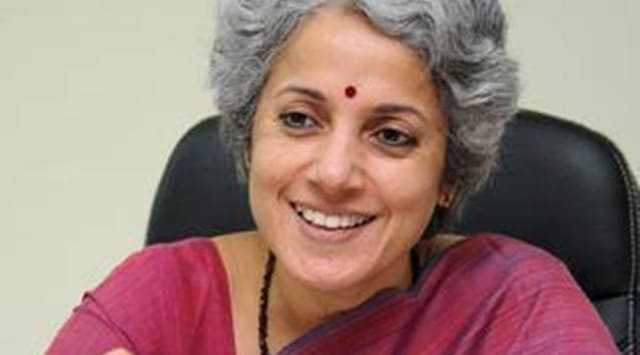WHO issues new recommendations on human genome editing for advancement of public health
Two new companion reports released by the World Health Organisation (WHO) on Monday provide the first global recommendations to help establish human genome editing as a tool for public health with an emphasis on safety, effectiveness and ethics.
 Dr Soumya Swaminathan, WHO Chief Scientist.
Dr Soumya Swaminathan, WHO Chief Scientist. Potential benefits of human genome editing include faster and more accurate diagnosis, more targeted treatments and prevention of genetic disorders.
Two new companion reports released by the World Health Organisation (WHO) on Monday provide the first global recommendations to help establish human genome editing as a tool for public health with an emphasis on safety, effectiveness and ethics.
Dr Soumya Swaminathan, WHO Chief Scientist, told a virtual press conference that the forward-looking new reports result from the first broad, global consultation looking at somatic, germline and heritable human genome editing. The consultation, which spanned over two years, involved hundreds of participants representing diverse perspectives from around the world, including scientists and researchers, patient groups, faith leaders and indigenous peoples.
“We want to encourage development of new techniques but this is the first time a global committee of 18 members has been brought together on this topic,” Dr Swaminathan said. The 18 members of the Committee worked for two years and developed several products and new initiatives. The governance framework on human genome editing, along with the recommendations of the Committee, form a set of two publications that provide advice and recommendations on appropriate institutional, national, regional and global governance mechanisms for human genome editing.
Potential benefits of human genome editing include new strategies for diagnosis, treatment and prevention of genetic disorders, new avenues to treat infertility, new ways to promote disease resistance, contribution to vaccine development and enhanced knowledge of human biology.
For instance, somatic gene therapies, which involve modifying a patient’s DNA to treat or cure a disease, have been successfully used to address HIV, sickle-cell disease and transthyretin amyloidosis. The technique could also vastly improve treatment for a variety of cancers. However, some risks exist, for example, with germline and heritable human genome editing, which alter the genome of human embryos and could be passed on to subsequent generations, modifying descendants’ traits.
The reports deliver recommendations on the governance and oversight of human genome editing in nine discrete areas, including human genome editing registries, international research and medical travel, illegal, unregistered, unethical or unsafe research, intellectual property, and education, engagement and empowerment.
The recommendations focus on systems-level improvements needed to build capacity in all countries to ensure that human genome editing is used safely, effectively and ethically. The reports also provide a new governance framework that identifies specific tools, institutions and scenarios to illustrate practical challenges in implementing, regulating and overseeing research into the human genome.
The governance framework offers concrete recommendations for dealing with specific scenarios such as a hypothetical clinical trial of somatic human genome editing for sickle cell disease proposed to take place in West Africa, proposed use of somatic or epigenetic genome editing to enhance athletic performance, an imaginary clinic based in a country with minimal oversight of heritable human genome editing that offers these services to international clients following in vitro fertilization and preimplantation genetic diagnosis. “These new reports from WHO’s Expert Advisory Committee represent a leap forward for this area of rapidly emerging science,” Swaminathan said.
WHO will convene a small expert committee to consider next steps for the registry, including how to better monitor clinical trials using human genome editing technologies of concern.








